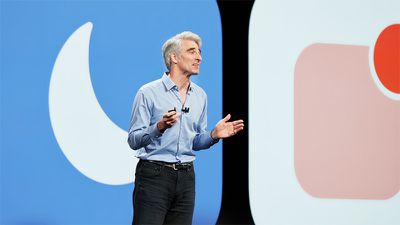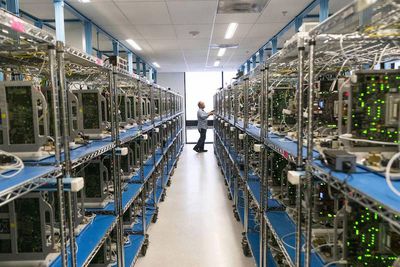In a recent op-ed for The New York Times, Google CEO Sundar Pichai said that "privacy cannot be a luxury good offered only to people who can afford to buy premium products and services," a comment that some viewed as a dig at Apple.

Apple's software engineering chief Craig Federighi has unsurprisingly disagreed with that position. In an interview with The Independent, he said that Apple aspires to offer great product experiences that "everyone should have," while cautioning that the values and business models of other companies "don't change overnight."
"I don't buy into the luxury good dig," says Federighi, giving the impression he was genuinely surprised by the public attack.
"On the one hand gratifying that other companies in space over the last few months, seemed to be making a lot of positive noises about caring about privacy. I think it's a deeper issue than then, what a couple of months and a couple of press releases would make. I think you've got to look fundamentally at company cultures and values and business model. And those don't change overnight.
"But we certainly seek to both set a great example for the world to show what's possible to raise people's expectations about what they should expect the products, whether they get them from us or from other people. And of course, we love, ultimately, to sell Apple products to everyone we possibly could certainly not just a luxury, we think a great product experience is something everyone should have. So we aspire to develop those."
Federighi emphasizes Apple's commitment to privacy throughout the interview, noting that the company aims to collect as little data as possible. When it does collect data, Apple uses technologies like Differential Privacy to ensure that the data cannot be associated with any individual user.
Federighi also refutes criticism about Apple's products and services being worse off because of its pro-privacy position:
"I think we're pretty proud that we are able to deliver the best experiences, we think in the industry without creating this false trade off that to get a good experience, you need to give up your privacy," says Federighi. "And so we challenge ourselves to do that sometimes that's extra work. But that's worth it."
As an example of Apple's privacy efforts, the article provides a look inside Apple's "top secret testing facilities" where its Secure Enclave chips for devices like the iPhone, iPad, Mac, and Apple Watch are said to be "stress tested" based on "extreme scenarios" like ice-cold -40ºF or blazing-hot 230ºF temperatures.

Within these testing facilities near Apple Park is said to be "a huge room" with "highly advanced machines" that heat, cool, push, shock, and abuse chips before they make their way inside Apple devices, but no further details were shared.
The lengthy interview goes on to discuss Apple's dispute with the FBI over its refusal to unlock an iPhone used by the shooter in the 2015 San Bernardino attack, as well as Apple's decision to store the iCloud data of Chinese accounts on servers overseen by GCBD, a company with close ties to the Chinese government.























